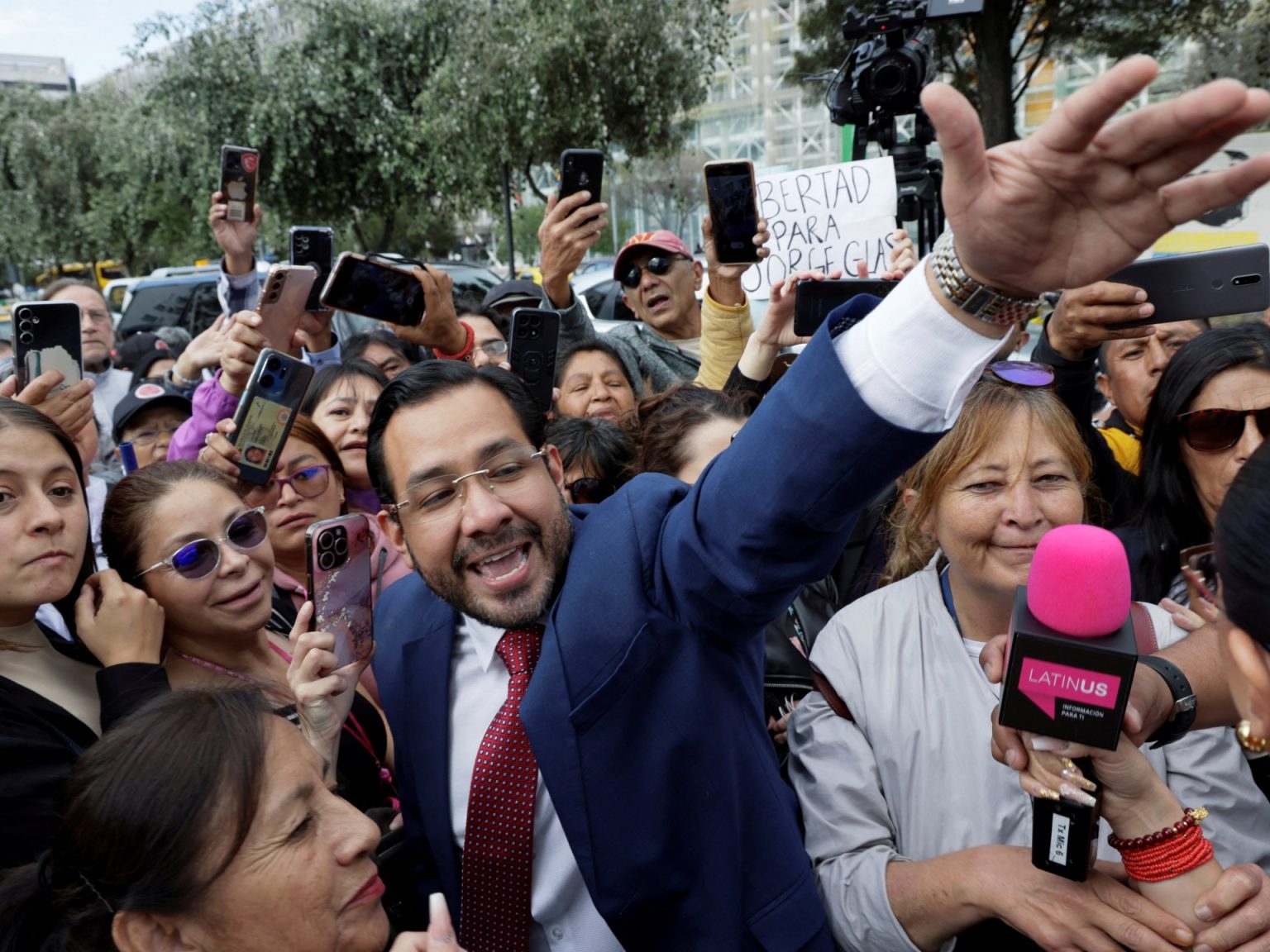The former Ecuadorian Vice President Jorge Glas had his arrest inside Mexico’s embassy in Quito declared illegal by a three-member panel, sparking praise from his defence team. The arrest had been the subject of international tensions as well as a political asylum granted by Mexico. The tribunal found that the arrest on embassy grounds had been “illegal and arbitrary” without proper authorization, violating diplomatic norms regarding the inviolability of embassy property. Despite this ruling, Glas remains imprisoned due to prior corruption-related convictions and the tribunal’s inability to modify his sentence. His defense team has vowed to appeal the ruling with hopes of securing his freedom.
The arrest of Glas had led to a diplomatic spat between Mexico and Ecuador, with Mexico severing ties and recalling its embassy staff. Other Latin American countries and the Organization of American States also denounced the police raid on the embassy. Ecuador’s government defended the actions taken, citing executive decree and arguing against granting political asylum to Glas. However, the tribunal found that the government’s defense lacked legal basis and declared the arrest as illegal. Glas, who had been sheltering in the Mexican embassy since December, has been conducting a hunger strike in protest of his imprisonment, leading to his hospitalization.
The ruling in favor of declaring Glas’s arrest as illegal was seen as a step forward by his defense team, who thanked the international community for their support. Despite this progress, Glas continues to be detained due to his previous convictions, leading to his ongoing hunger strike in protest. Mexico has taken further action by filing a complaint with the International Court of Justice to expel Ecuador from the United Nations until a formal apology is given for the violations of international law during the embassy raid. The situation has sparked international attention and condemnation, with calls for justice and diplomatic accountability surrounding the treatment of political figures like Glas.
The issue of inviolability of embassies and the protection of diplomatic immunity has been highlighted by this case, with the tribunal emphasizing the importance of respecting these principles. The tensions between Mexico and Ecuador reflect broader challenges in diplomatic relations and international law, with both countries facing scrutiny for their actions. The decision to uphold Glas’s ongoing imprisonment despite deeming his arrest as illegal raises questions about the intersection of political asylum, diplomatic norms, and judicial processes. Glas’s case serves as a reminder of the complexities and controversies surrounding high-profile political figures, corruption charges, and diplomatic interventions in cases of persecution.
While the ruling on Glas’s arrest has been celebrated as a victory for his defense team and human rights advocates, the decision to uphold his imprisonment highlights the limitations of legal recourse in cases involving political figures. The ongoing hunger strike by Glas and the international condemnation of Ecuador’s actions demonstrate the broader implications of this case for diplomatic relations and the rule of law. As the legal battle continues and appeals are pursued, the fate of Jorge Glas remains uncertain, with his imprisonment raising concerns about the treatment of political detainees and the protection of fundamental rights in the face of corruption charges. The resolution of this case will be closely monitored by the international community for its implications on diplomatic immunity, human rights, and legal accountability.


